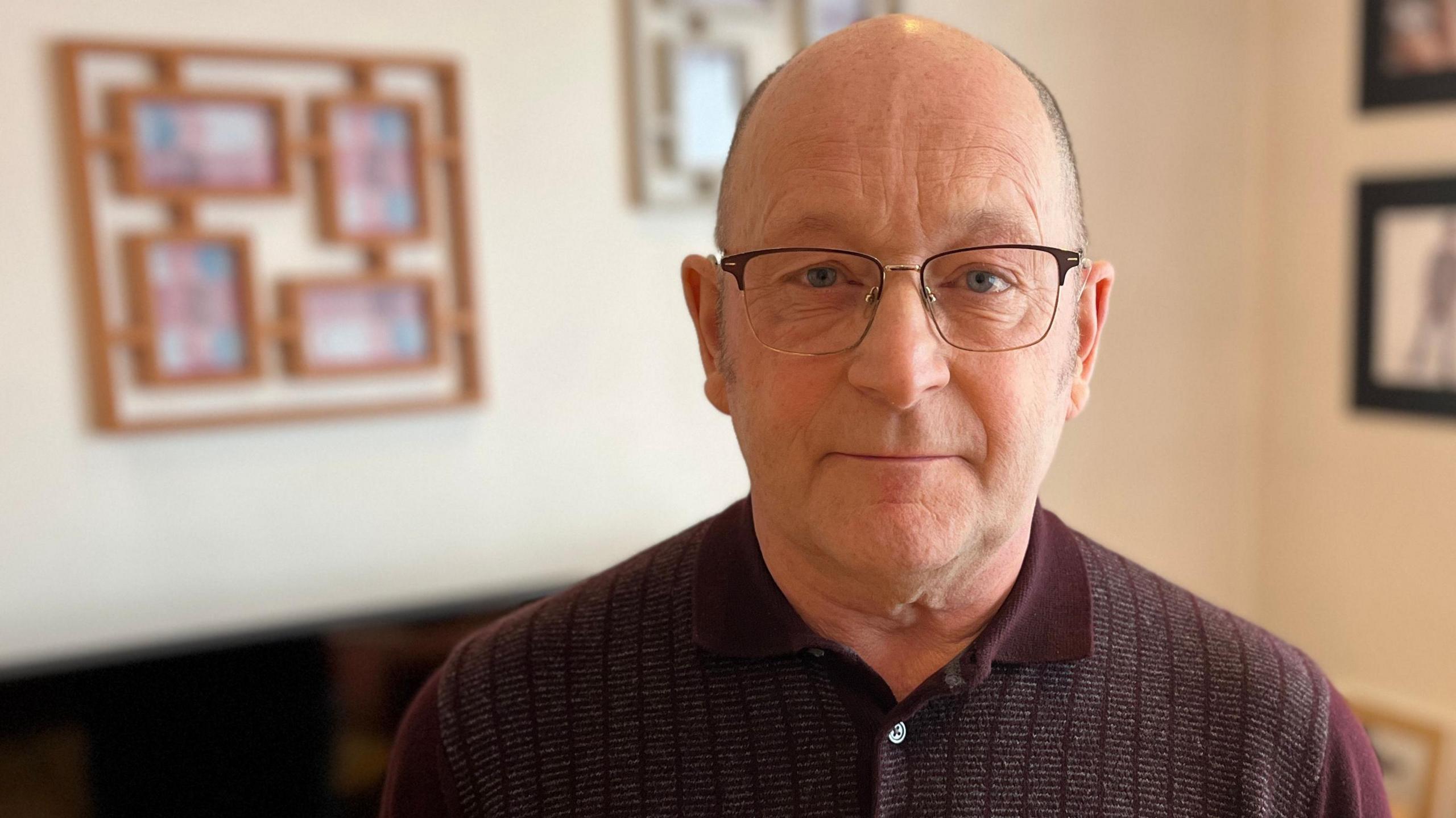New hope for patients with asbestos-linked cancer

James Fox was diagnosed with mesothelioma in 2018 and given less than a year to live
- Published
For the first time researchers in Southampton have used a drug to slow the growth of an asbestos-linked cancer.
Mesothelioma is an aggressive cancer that forms in the lining of the lungs or abdomen and is linked to breathing in or ingesting dangerous asbestos fibres.
Experts have said the breakthrough gives new hope to patients who have exhausted traditional treatments, and could give them more time with their loved ones.
Prof Gareth Griffiths, director of the Southampton Clinical Trials Unit and co-lead of the trial, called it "a significant step forward".
James Fox, from Dorset, was diagnosed with mesothelioma in 2018 and given less than a year to live.
Having tried other treatment options, he was offered the chance to join the new drug trial, and said the results had been remarkable.
As an architect, in the 70's and 80's he was exposed to asbestos, which has now been linked to his aggressive cancer, with only 5% of those diagnosed surviving for five years or more.
Mr Fox said: "I've had seven really good years and been able to enjoy life almost to the full so that's wonderful.
"So far it's been almost a miracle in my case."

For Mr Fox, who has five grand children, the treatment has surpassed all his expectations
The trial was run by researchers at the University of Leicester and the Cancer Research UK Southampton Clinical Trials Unit, with funding provided by the charity Asthma + Lung UK.
Called the NERO trial, it looked at a class of drug known as PARP inhibitors, which work by blocking the repair of damaged DNA in cancer cells, thereby causing the cancer cells to die.
PARP inhibitors have already been shown to improve the survival of patients with some types of breast and ovarian cancers.
A previous study had also shown that mesothelioma does respond to this type of drug, but more evidence was needed as to whether it could improve outcomes for patients.
At 11 hospitals across the UK, 88 patients whose mesothelioma treatment had stopped working took part in the trial.
'Enormous hope'
Those given a PARP inhibitor called niraparib were found to have a 27% reduction in the risk of the cancer progressing or death.
This delayed the worsening of mesothelioma by an average of 1.5 months compared to those receiving the standard of care treatments, with a number of patients seeing a much longer period of time where their cancer was being controlled.
Prof Griffiths said: "We have shown for the first time that this kind of drug can improve progression-free survival for mesothelioma patients compared with their usual treatment in the NHS.
"This gives enormous hope to those patients and their families and means we can now carry out further research to find out more about how these treatments could be tailored and enhanced to stimulate an even better response in more people."
For Mr Fox, who has five grand children, the treatment has surpassed all his expectations.
"It's dramatic, the improvement, I don't think this could have possibly happened without this particular drug, without being offered it.
"It must be the drug that's been keeping me fit and alive, so I'm very grateful for that."
Get in touch
Do you have a story BBC Hampshire & Isle of Wight should cover?
You can follow BBC Hampshire & Isle of Wight on Facebook, external, X (Twitter), external, or Instagram, external.
Related topics
- Published8 July 2024

- Published5 March

- Published28 January
